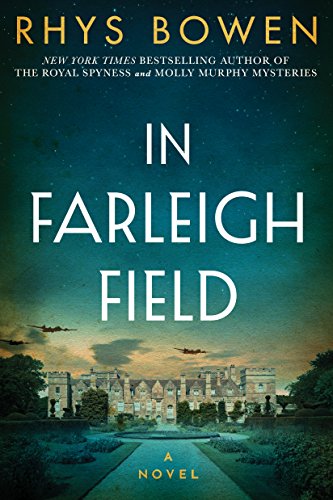In Farleigh Field
It is only those who have neither fired a shot nor heard the shrieks and groans of the wounded who cry aloud for blood, more vengeance, more desolation. War is hell.
— William Tecumseh Sherman
I have lived a blessed life thus far in that I’ve never been a soldier on any battlefield. The closest I’ve come is thousands of miles away, alone on my couch, watching in horror as the first air strikes of the so-called “Shock and Awe” campaign slammed down on Hussein in the second Iraq war. I also stood in disbelief on the streets of New York when the towers came down. As fate would have it, I was working in the Flatiron district, 26th and 5th to be exact. I was near enough to see the smoke billows, but far enough to be out of danger. In both instances, I was removed yet overwhelmed with the surreal emotions being a mere spectator of the aforementioned hell that war brings.
In Farleigh Field takes place (mostly) in England during World War II. It opens with a dashing and cavalier character learning to fly. He takes his friend up in the air and subsequently crashes his small aircraft onto a lawn during an afternoon tea party. The scene sets the two opposing tones for the book: whimsy and danger. Yes, there’s a war going on but nearly everyone in this story seems to be somewhat removed from it. I wouldn’t say they don’t care, they actually care quite a bit. But there is this overreaching feeling that the events literally happening right in their backyard are happening far away. It’s almost as if the war itself is an ominous character in some other story; one that these players are concerned with on a superficial layer. They possess a shared, romantic understanding of world events affecting them directly. They speak of duty and country as if they are carefree concepts. These men and women serve to the best of their capabilities, but they undertake their individual war efforts with an underlying sense of immature aplomb.
None of this speaks to the writing itself. In Farleigh Field is a well-crafted story. It moves fast in spite of the odd character beats. Focusing on one family with five (six?) daughters, I sometimes got lost trying to remember who was who. Each girl has her own motivation, personality, and part to play, but because they are similar at their core (and because there are so many of them jockeying for center stage), it is occasionally a challenge to discern what their individual deals are.
The Dead Parachuter
The main thrust of the plot revolves around an unknown dead man in Farleigh field. He has fallen from the sky and crashed in the protagonists’ backyard. He is quite dead as his parachute failed him. He wears an English uniform but cannot be accounted for by any commanding officers in the vicinity. Thereby, the mystery corpse raises immediate suspicion; rumors abound throughout the town that he was likely a German spy. But what was his failed mission? And why did he land in Farleigh field? Could any of the well-to-do girls (or their father) be a German sympathizer? Nonsense! Pass the crumpets, dear.
As these characters move through the story, it becomes apparent that each and every one of them has some secret having to do with the war. Everyone seems to be doing their part but no one is talking about it because, of course, all the work is Top Secret. I’m sure this aspect of fighting the fight behind the fight by gathering intelligence, codebreaking in the shadows, and doing it all for no reward or mention was accurate for the time. However, the way in which these characters put their best feet forward seems foolhardy. We recognize their limitations and are hard-pressed to believe any of them could be useful tools against the enemy. And yet, perhaps their unassuming nature is exactly what makes them unlikely adversaries? Regardless, deciphering and coming to terms with their actions makes for one peculiar read.
The Big Event
Halfway through the book, something big happens and the characters involved react in heroic fashion. When the smoke clears, the smoke vanishes. It’s almost as if the big event never happened. Sure, there are residual discussions but the enormity of the experience seems lost. This individual plot point, treated with kid gloves and in danger of being overlooked, is the perfect example of how the entire novel plays out. It is, to the best of my knowledge, a unique storytelling technique — to allow your characters to care greatly about world matters while barely being capable of understanding what occurs right in their own backyard. For that, In Farleigh Field succeeds at being an original, interesting tale.



